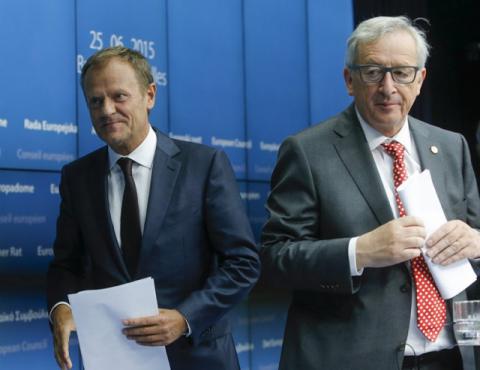Bulgaria, Hungary Granted Exemption from Migrants' Relocation

Hungary and "to a certain extent Bulgaria" will be treated as "special cases" when it comes to migrant relocation, European Council Donald Tusk has said.
His comments followed a move by EU leaders to agree at a late-night summit on the relocation, short of adopting quotas.
As many as 40 000 asylum seekers will be relocated across the EU from Italy and Greece in two years. Another 20 000 will be resettled.
This comes after the failure of EU heads of government taking part in a European Council meeting Thursday and Friday, with Council President Donald Tusk warning there is "lack of consensus" on the issue.
States will have the option to voluntarily receive asylum seekers, but specific conditions in Bulgaria and Hungary allow them to have their own stand.
Quotas were mainly resisted by Eastern European nations. Hungary in particular even moved to announce the construction of a fence along with its Serbian border to curb migrant influx, insisting it could not "afford to wait any longer" for a common EU solution.
Bulgaria for its part has long warned that its economy and infrastructure are unable to withstand a sustained flow of asylum seekers.
Prior to the late-night phase of talks, Bulgarian Prime Minister Boyko Borisov warned his country was putting substantial funding aside to accommodate migrants and the EU needs to adopt a decision to help the county just as it does with regard to Italy, Greece, and Spain.
In his words, tightened security in the Mediterranean will inevitably redirect part of the influx to the Bulgaria-Turkey border.
UN data suggests some 63 000 migrants have arrived in Greece this year, and 62 000 people have reached Italy. Torn by a civil war, Syra has been the biggest...
- Log in to post comments










